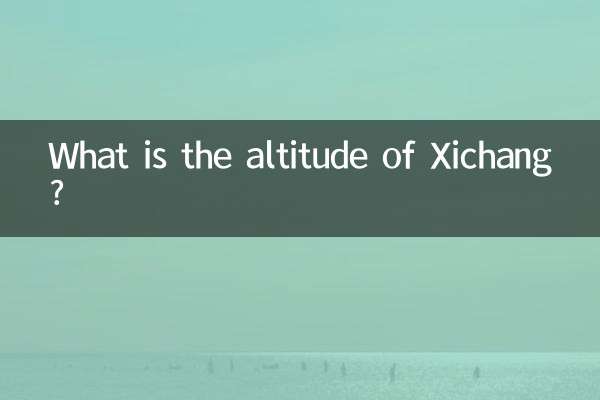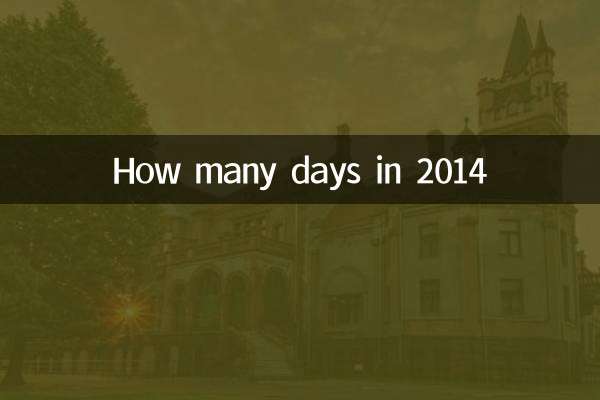How many days of vacation are there in a year? Comparison of global holidays and analysis of hot topics
Recently, the discussion about the number of vacation days has become one of the hot topics on the Internet. As work pressure increases and quality of life demands increase, people's focus on holidays has increased significantly. This article will combine the hot content of the past 10 days on the Internet, analyze the number of holidays in major countries around the world, and explore related social phenomena.
1. Comparison of statutory holidays in major countries around the world

| country | Statutory paid holidays | public holiday | Total number of vacation days |
|---|---|---|---|
| China | 5-15 days | 11 days | 16-26 days |
| USA | 10 days | 10 days | 20 days |
| Japan | 10-20 days | 16 days | 26-36 days |
| germany | 20-30 days | 9-13 days | 29-43 days |
| france | 25-30 days | 11 days | 36-41 days |
| United Kingdom | 20-30 days | 8 days | 28-38 days |
| Brazil | 20-30 days | 12 days | 32-42 days |
2. Recent hot topics related to
1.The controversy over "adjusted leave" continues to ferment: The recent holiday arrangements in China have sparked widespread discussion. Netizens have expressed dissatisfaction with the "tear down the east wall to make up for the west wall" approach to holiday breaks. Related topics have been read more than 500 million times.
2.Four-day work week experiment: The experimental results of the four-day work system in the UK, Iceland and other countries have attracted attention. Data show that this system can increase work efficiency by 15-40% and improve employees' mental health.
3.Difficulty in implementing paid leave: A survey shows that only 50% of working people in China fully enjoy paid leave, and the implementation rate of small and medium-sized enterprises is less than 30%, which has become a hot topic in workplace accounts recently.
4.Economic data shines during holiday season: The latest statistics show that China will have 2.5 billion holiday tourists in 2023, generating tourism revenue of 2.5 trillion yuan, and the holiday economy’s contribution to GDP will exceed 5%.
3. Social Impact of Holiday Differences
1.Work efficiency and innovation: Research shows that reasonable time off can increase employee creativity and productivity. Countries with more holidays, such as France, have higher hourly labor productivity than countries with fewer holidays.
2.mental health issues: A report by the Chinese Academy of Social Sciences pointed out that insufficient vacation is an important cause of workplace anxiety. Nearly 60% of respondents said that "holiday anxiety" affects work performance.
3.fertility rate: Expert analysis points out that there is a correlation between holiday policies and fertility rates. The perfect parental leave system in Nordic countries makes their fertility rate higher than that in East Asian countries.
4. Holiday optimization suggestions
1.Flexible holiday system: Experts recommend promoting flexible leave and allowing employees to arrange part of their leave according to their needs.
2.Implement paid leave: Strengthen labor inspections, ensure that companies implement paid leave systems, and recommend providing subsidies and incentives to small and medium-sized enterprises.
3.Optimize vacation structure: Consider increasing the frequency of short vacations to avoid over-reliance on traffic and travel pressure caused by long vacations.
4.Digital vacation management: Use blockchain and other technologies to establish a transparent holiday management system to prevent corporate violations.
5. Future Outlook
With the development of AI and automation technology, the boundaries between work and vacation may become even more blurred in the future. The popularity of hybrid office models may redefine the concept of "vacation". Experts predict that by 2030, the global average number of vacation days may increase by 10-15%, and China is expected to reach the mid-level level of developed countries.
Holidays are not only a time for rest, but also an important indicator of social civilization. While pursuing economic development, how to balance work and life will become a key issue in future social policy formulation.

check the details

check the details